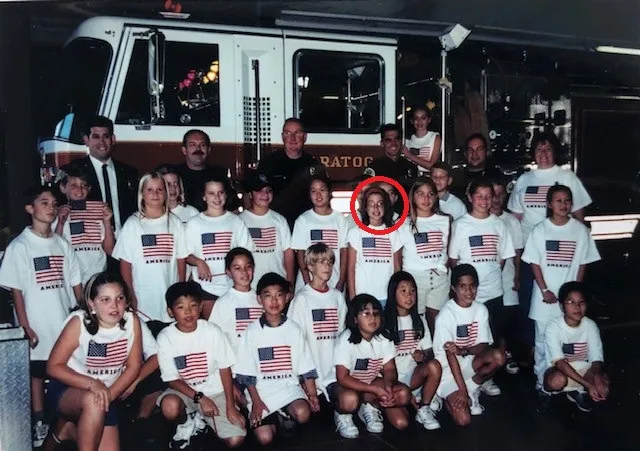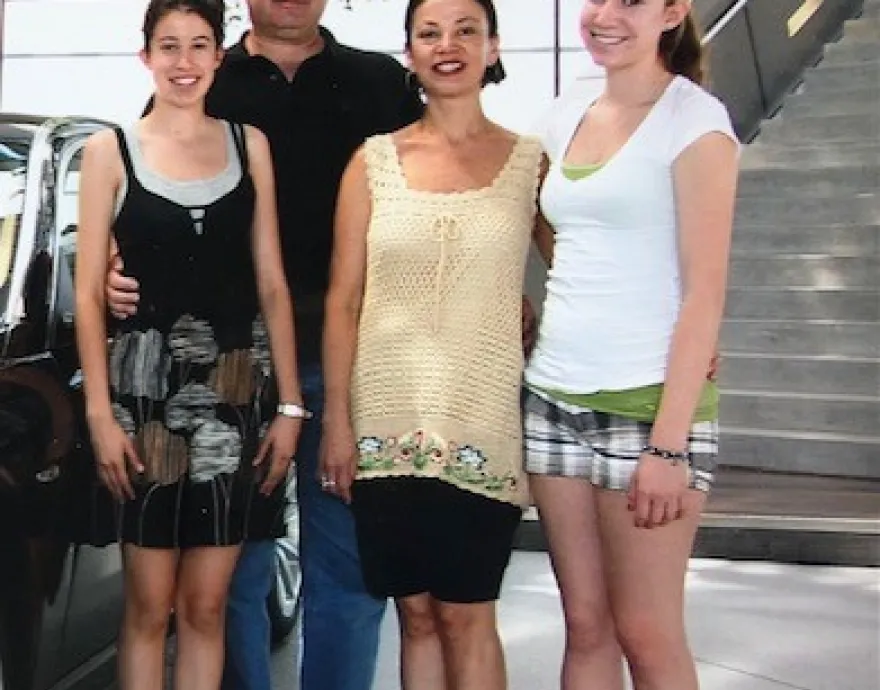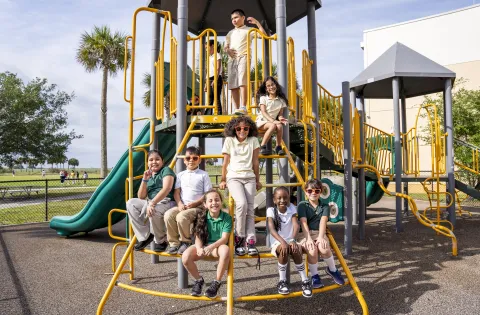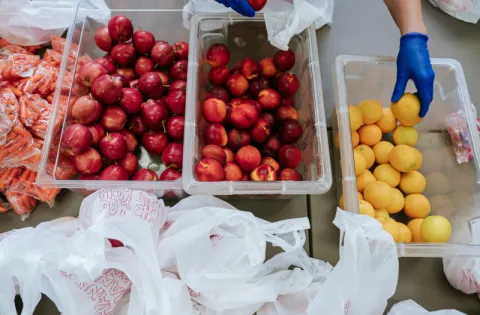As part of our celebration of Hispanic Heritage Month, we’re sharing stories of Hispanic staff members highlighting their diverse experiences and what connects them to end childhood hunger. Today’s blog post is by Elena Rees, who serves as manager for Cooking Matters, a campaign by Share Our Strength — the organization behind No Kid Hungry.

Growing up in Silicon Valley, Calif, I was one of three Latina students in my school —one of which was my sister. Most students and teachers knew I was Latina because either they knew my mom or because of my name, “Elena,” which was not very popular in the 90s. It was ‘exotic’ enough for people to question what I was.
I always hated my name growing up and had serious conversations with my parents about changing it. I was the only Elena I knew. It was not popular or what I thought was cool, and I was frustrated by the fact that no one could pronounce or spell my name.
Ever since I was little, I was aware of my biracial Costa Rican and Italian background. My dad’s Italian side of the family mostly lives within an hour radius of us, so we spend a lot of time together. My mom’s Costa Rican side lives back east or still in Costa Rica and we have had the privilege of visiting them often.
I always felt I had to navigate between these identities.
As a kid, I was able to communicate in Spanish. During elementary school, I had one other friend that was Latina. We had a close bond and spoke Spanish to each other, much to the dismay of the other girl in our friend group. She called us out on speaking Spanish to each other, and the fact that she did not like that she couldn’t understand. Without much hesitation, we just stopped speaking Spanish altogether.
I always knew I was Latina but, as I got older, it was more apparent that I was closer to my white side. We stopped speaking Spanish at home, so my skill level dropped and I felt as if I was back at square one trying to learn Spanish in the classroom. I felt ashamed, I was the one Latina kid in Spanish class that could not speak Spanish and it was embarrassing.
I have the privilege of being white-passing. I have a white last name, a so-called California accent, and lighter skin. Yet people would still make one-off jokes about my Hispanic heritage and I would just try to brush it off. It is not until now when I reflect on those moments that I wish I said something.
One particular moment was when I was in high school. I was at a political rally and a city official whom I’d known for years asked me about where my mom was from. Eager to share, I said, “Costa Rica!” Their immediate response was, “Is your mom illegal?” to which I said, “No.” Reflecting on that moment still makes my blood boil, wishing I had said something much different.
Fast forward a few years, I moved to Colorado for college where the name Elena was increasing in popularity yet still interesting enough. My university in Colorado was predominantly white and I did not feel Latina enough to hang out with the small minority of Latinos there.

Elena (left) with her parents and sister.
I was invited by a then co-worker to join her Latina sorority and upon meeting them, I had never felt more out of place. They all spoke Spanish to each other, listened to Spanish music that I had never heard of and were all 100% Latina. I felt that our only commonalities were our love of all Hispanic foods. I did not end up joining the sorority but became cognizant of the role that food can bring towards creating a sense of belonging. I reflect on this moment and through my work with Cooking Matters. I enjoy bringing communities together through food. In our programs, we foster a sense of belonging through food; it can be as simple as discussing favorite foods or even share struggles with feeding kids.
For a long time, I have felt like I was never Latina enough. People do not know I’m Latina unless they ask. I do not speak the language, and I have never lived or grew up in a community that was Spanish-speaking. The latter has changed most recently as I have moved to San Diego where the population is 30% Hispanic.
Living in a predominantly Hispanic neighborhood has made me feel more in touch with my Latina side than I have ever experienced. I recently had one Spanish-speaking woman come up to me in the department store asking if I can help her find a face serum. I was delighted by the idea that she might think I’m Latina just based on appearances, but quickly realized I had no idea what the word ‘serum’ is in Spanish —though I managed. However, the most pivotal moment that contributed to my sense of belonging was when I ordered takeout, went to pick up the food, and the restaurant spelled my name correctly on the order. That has never happened!
Who knew that having someone spell my name correctly or even with the right pronunciation would be what made me feel a sense of belonging! In all of my years of disliking my so-called ‘exotic name’, it turned out to be the very thing that has tied me back to my Latina roots.


